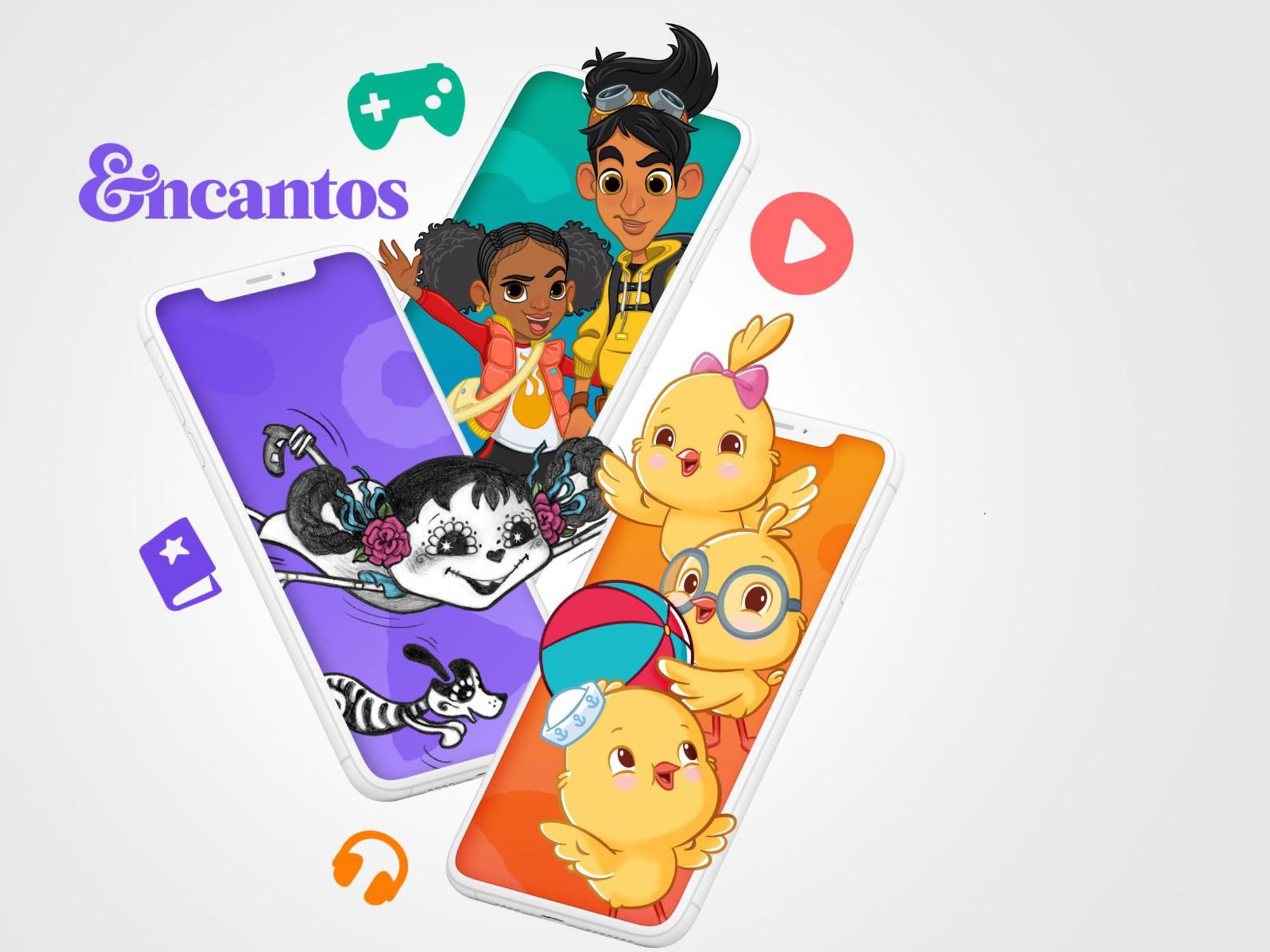Encantos' Learning App Will Be Powered by a Network of Creative Educator-Authors
Sam primarily covers entertainment and media for dot.LA. Previously he was Marjorie Deane Fellow at The Economist, where he wrote for the business and finance sections of the print edition. He has also worked at the XPRIZE Foundation, U.S. Government Accountability Office, KCRW, and MLB Advanced Media (now Disney Streaming Services). He holds an MBA from UCLA Anderson, an MPP from UCLA Luskin and a BA in History from University of Michigan. Email him at samblake@dot.LA and find him on Twitter @hisamblake

Companies that directly connect creators to users are decidedly in vogue, even in the colorful cuddly world of kids' content.
Encantos, the L.A.-based children's book publisher-turned-edtech startup, plans to include a creator platform on its new app that it will roll out this fall, chief executive Steven Wolfe Pereira told dot.LA.
"Where Roblox as a creator platform connects gamers and developers, we're going to be connecting creators and kids," Wolfe Pereira said.
The startup is taking a page from creator marketplaces set up by Roblox, Substack and Patreon — along with YouTube and virtually every social media platform trying to lure influencers to their apps.
In 2020, Encantos launched a subscription service that packages its games, puzzles and books tied to its growing roster of what it calls its "storyworlds." These include "Canticos," which features three baby chickens who help kids prepare for kindergarten and learn English and Spanish, "Tiny Travelers," which is focused on geography and culture and "Skeletitos," which features dancing skeletons who teach critical life skills like telling time.
The company's subscription revenue has since grown to surpass income from its retail products, and as Encantos' digital footprint grows, the company aims to pull in 95% of its sales from subscriptions, Wolfe Pereira said.
Encantos' Canticos app is part of that digital growth goal. It launched last fall as an early step toward creating a direct-to-consumer personalized learning platform that it plans to release this September. The company wants its Encantos app to become the "home for learning 21st century skills," Wolfe Pereira said.
In addition to Encantos' own storyworlds, the app will incorporate educational storytelling content from external creators, who will be paid based on how much user engagement their content produces. Exactly what that compensation will be based on hasn't been finalized, but it will likely depend on how much the users are learning and showing signs of having fun, Wolfe Pereira said.
Encantos said it's creating an approval process for creator submissions , which will entail a combination of human review and machine learning. No formal teacher certification will be required.
"You don't need to be a teacher to teach," Wolfe Pereira said.
And just as Netflix recommends what its users should watch next, so too will Encantos recommend what its users should learn next, based on data that informs the personalized learning experiences.
Encantos launched in 2015 after Wolfe Pereira, his wife and another couple grew frustrated by the publishing industry's lack of interest in bilingual books targeted at Latino children. The company's first storyworld was "Canticos," which went on to become a popular series for Nick Jr. after Encantos struck a deal in 2017 to license it to Nickelodeon.
Encantos has raised $8.5 million and last year brought on global tech executive Sol Trujillo as its board chairman. dot.LA Chairman Spencer Rascoff is an investor in the startup.
It is not yet clear how many creators will ultimately feed into the Encantos platform. Wolfe Pereira said he has begun lining up some celebrities and subject matter experts. But he is also looking forward to watching unexpected creators break through.
"We're gonna have story teachers from around the world put stuff onto this platform and we have no idea what is going to go viral," he said. "I know there's going to be this pent-up demand where you'll have all these people wanting to share and help kids learn something."
- Encantos Plans for a More Diverse Future in US EdTech - dot.LA ›
- Edutainment Startup Encantos Raises $5.7 Million - dot.LA ›
- Encantos Hires Former Girl Scouts of America CEO - dot.LA ›
- Encantos Founder Steven Wolfe Pereira on His Multicultural Teaching and Publishing Platform - dot.LA ›
- Copper Wants To Be the Top Social Media App for Authors - dot.LA ›
- Yonder App Wants You To Binge Reads Books - dot.LA ›
- Yonder App Wants You To Binge Reads Books - dot.LA ›
- Substack Rolls Out New 'Private' Feature - dot.LA ›
- Kenny Keller's Path to Success Through Kajabi - dot.LA ›
Sam primarily covers entertainment and media for dot.LA. Previously he was Marjorie Deane Fellow at The Economist, where he wrote for the business and finance sections of the print edition. He has also worked at the XPRIZE Foundation, U.S. Government Accountability Office, KCRW, and MLB Advanced Media (now Disney Streaming Services). He holds an MBA from UCLA Anderson, an MPP from UCLA Luskin and a BA in History from University of Michigan. Email him at samblake@dot.LA and find him on Twitter @hisamblake



 Image Source: Revel
Image Source: Revel
